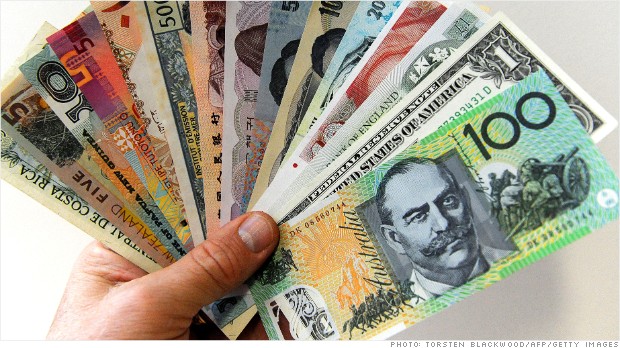Cypriot Crisis Endangers Russian Financial Flows
24 March 2013
Reuters
Reuters
If Russian elites still have money in Cyprus, where many of them base their businesses, they aren't letting on.
"You must be out of your mind!" snapped tycoon Igor Zyuzin, main owner of New York-listed coal-to-steel group Mechel, as he dismissed a suggestion this week that the financial meltdown in Cyprus posed a risk to his interests.
His response is typical across the rarefied class of major corporations and super-rich individuals, reflecting the assessment of officials and bankers on the Mediterranean island who say the bulk of the billions of euros of Russian money in Cyprus comes from smaller firms and middle-class savers.
The collapse of an economy 75 times smaller than its own may not have much impact in Russia, though the crisis has strained relations with the European Union, raised questions on Russian influence over Cypriot politicians and highlighted geopolitical competition for new offshore gas fields. But some Russians would suffer.
As much as losses likely to be sustained on deposits held in Cypriot banks, pain for the Russian economy could come from a disruption in money flows between Russians that pass through the island — transfers that dwarf Cyprus's own national income.
Light regulation and taxes, cultural ties through Orthodox Christianity, and the Mediterranean weather have long attracted the capital and savings of Russians, many keen to keep their wealth out of the sight of often predatory bureaucrats at home.
Yet, precisely because investors can hide their wealth behind nominee structures, often held in the name of a local lawyer, it is difficult to say just how much Russian money is tied up on the Mediterranean island, or how much has already left.
Where it is going is also unclear, though a possible rise in Russian deposits in fellow EU member Latvia, a former Soviet republic that hopes to enter the euro zone next year, has raised concerns of displacing instability northward.
Billions Held
Russians are believed to account for most of the 19 billion euros ($25 billion) of non-EU, non-bank money held in Cypriot banks at the last count by the central bank in January, when total non-bank deposits were 70 billion, 60 percent of them classified as "domestic". Of 38 billion in deposits from banks, 13 billion came from outside the European Union.
But the ease with which Russians can establish residency and local corporations in Cyprus muddies the data. One senior financial source in Moscow said a total of 20 billion euros held by Russian firms in Cyprus was a "significant underestimate."
Cypriot central bank chief Panicos Demetriades was asked by Russia's Vedomosti newspaper this week how much money Russians held on the island. He replied, "It depends how you count it."
Deposits formally identified as Russian totaled 4.9 billion euros, he said. Add the funds of shell companies believed to be linked to Russia and the figure rose to 10.2 billion euros. But many Russian and other analysts think the sums are much higher.
One Cyprus-based lawyer reckons that $2 billion in Russian money fled in the 10 days before banks were shut down this week while Nicosia argued over an EU bailout. Phones are ringing from Malta to the Isle of Man as that cash seeks a new safe haven.
Russian business leaders criticized the EU bailout plan and the "haircut" it would impose on depositors. However, if Cyprus stands by its rejection, heavier losses could result.
"There will be a serious outflow of capital from Cyprus," said Vladimir Potanin, the chief executive of Norilsk Nickel, the world's largest nickel and palladium miner.
"It won't affect me or my company. But they have put Cyprus to the knife and what has happened is a disgrace."
Sources in the wealth management, advisory and banking industries in Nicosia say Russian depositors are typically smaller savers and entrepreneurs. Fiona Mullen, a British economist in Cyprus, said Russians she encounters tend to be buying 300,000 euro homes, not the palaces favored by oligarchs in London.
"There is a lot of Russian business done through Cyprus," she said. "It's so difficult to do business in Russia, you've got to bribe so many people, that it's easier to do it through Limassol. It's kind of the back office for Russia."
A business adviser said of his Russian customers, "Clients would be well off, but not the private jet kind." Most did not use Cypriot banks to keep money but as a conduit for funds.
Cyprus charges foreigners no tax on dividend income and capital gains. A double taxation treaty with Russia provides attractive incentives for Russians to use Cypriot banks. Even on Thursday, with Nicosia in crisis, one adviser said he had had two new requests from abroad to set up Cypriot shell companies.







